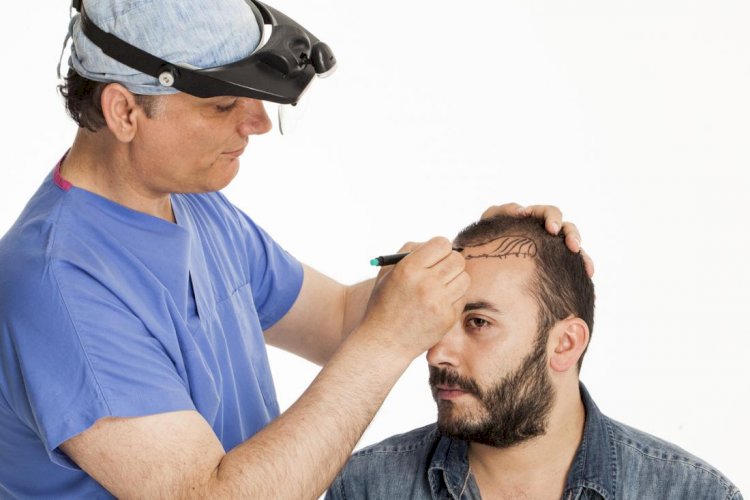What Are The Surgeons' Credentials For Hair Transplant Surgery? – Part 1
For safe surgeries, the certification of surgeons is a must. Does your surgeon have one? Explore the possibilities of certifications for surgeons.

Who Is A Licensed Hair Transplant Surgeon?
Most patients are surprised to learn that becoming a hair transplant surgeon does not require an actual surgical residency or any form of postgraduate training while hair transplant surgery is a highly sophisticated and extremely elegant subspecialty of cosmetic surgery. In at least 1 of the 14 surgical specialties the American College of Surgeons recognises, most people assume all surgeons have completed accredited surgical residency programs after graduating from medical school and are carefully trained. This is typically not reality, however, shockingly when it comes to hair transplant surgery.
Practicing hair transplant surgery exclusively is of course a handful of board-certified general and plastic surgeons. Not required nor status quo is their accreditations. Since accredited surgical residency programs do not offer any hair transplant surgical training and the ACGME (Accreditation Council for Graduate Medical Training Education) does not recognise fellowship programs for physicians interested in practicing this very specialised discipline of aesthetic surgery their surgical training is barely relevant.
How is this possible?
As long as the patient consents, legally in the US as well as in some other countries, the physician’s license to practice medicine comes to be unrestricted thereby meaning that any physician M.D. or D.O. can then perform any medical action including surgery without any specific surgical training. In no way it qualifies them to be surgeons just because physicians legally perform surgery.
Including family medicine, internal medicine, dermatology, otolaryngology (ENT), emergency medicine, and urology, with that said, an elite subset of physicians are practicing hair transplant surgery from various medical specialties. Taking it upon themselves to do independent, intensive post-graduate training which sometimes includes preternsips, these physicians have dedicated their lives to the art and science of hair transplant surgery. Placing physicians in the operating room with experienced hair transplant surgeons who teach their craft, preternships are usually relatively low-paying, private internships. Which may last a year or longer, it's intensive on-the-job training in a private practice setting. To eventually perform hair transplant surgeries independently, physicians may also take independent courses to gain the knowledge needed to thereby successfully work alongside experienced hair transplant surgeons.
The true qualifications of every physician offering hair transplant surgery and not allowing credentials to confuse them, prospective patients must fully understand it. Patients must know exactly what these credentials represent while surgeons’ credentials may seem impressive.
Of those in the field of hair transplant surgery may cite, the following list provides a detailed explanation of possible credentials.
The American Board Of Hair Restoration Surgery (ABHRS) When It Comes To The Board Certification
For the specialty of hair transplant surgery, currently, the American Board of Medical Specialities (ABMS), has no certification process nor an approved medical specialty board sanctioned. Of which the American Board of Hair Restoration Surgery is not part, the ABMS is an organisation of 24 approved medical specialty boards. To assure the public that those of the ABMS Member Board certified have completed approved training programs as well as evaluation processes that then assess the physicians’ abilities to provide quality patient care in the specialty is the intent of the certification of physicians. It does not meet the basic standards the ABMS requires to ensure physician competency since the ABHRS is a self-designated board with no ACGME residency requirement for hair transplant surgery.
Including but not limited to all digital media, websites, and signatures, in the US, 11 states have thereby incorporated advertising regulations or resolutions stating only physicians who achieve ABMS or AOA certification may use the term board-certified in their advertising.
He or she is not certified in the traditional sense and may violate state policy if a physician claims to be board certified in hair transplant surgery or thereby it is certified by the American Board of Hair Restoration Surgery also called ABHRS. It helps to check with the individual state.
To ensure consumers are not misled by possibly false claims, for this reason, the American Board of Hair Restoration Surgery has implemented a strict advertising policy whereas all the members of the ABHRS should therefore sign and adhere to this standard where the states then advertise themselves to be a diplomate of the ABHRS when opposed to being Board Certified in hair transplant surgery.
The Discussion Continues
When you go for a hair transplant surgery keep these and the coming tips in mind. It will ensure your safety after the surgery. Take care and be safe.
What's Your Reaction?





















